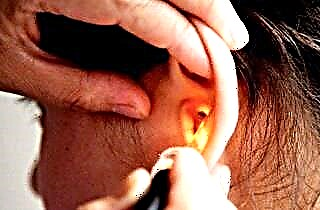Coffee is the most commonly consumed stimulant product. Improving memory and performance, speeding up thought processes are the main effects of the drink caused by the presence of caffeine. 400,000 cups is the number that the US population drinks every day. Once in the systemic circulation, caffeine acts on many organs and systems. However, patients are most interested in how coffee affects the heart, since after drinking coffee, people often feel palpitations, increased blood pressure and other negative symptoms of the cardiovascular system.
Effects on the cardiovascular system
The effect of coffee on the human body is caused by the presence of active substances in the composition of coffee beans: caffeine, theobromine, trigonelline, chlorogenic acid and mineral salts. The main effect of the drink is realized with the help of caffeine.

Caffeine is an alkaloid found in cocoa beans, tea leaves and guarana (included in Coca-Cola). The effect of the substance is due to the blocking of the enzyme phosphodiesterase in the blood plasma, adenosine receptors in the central nervous system and the direct effect of metabolites on the vascular endothelium.
The enzyme phosphodiesterase breaks down energy molecules (cAMP) in muscle fibers. Violation of the process is accompanied by the accumulation of calcium ions and energy in the muscles of the vascular wall involved in contraction.
The negative effect of a coffee drink on the heart is caused by a widespread spasm of the coronary vessels. The linear and volumetric blood flow velocity through the narrowed lumen decreases, therefore, oxygen starvation of the heart muscle occurs.
The direct effect of caffeine on the endothelial layer of the vascular wall causes a fulminant spasm of the capillaries, after which a pronounced vasodilation (expansion of the lumen) occurs.
The negative effect of the drink: what is the danger of coffee for human blood vessels?
People who consume more than two cups of the drink daily, note periodic increased and rapid heartbeat, increased blood pressure, chest pain. These symptoms are characteristic of ischemic damage to the heart muscle.
Inconsistency between delivery and myocardial oxygen demand arises due to narrowing of the lumen of the coronary vessels. The harmful effect of coffee on the functional state of the heart is realized by the following mechanisms:
- a prolonged increase in systemic blood pressure increases the load on the left heart, resulting in hypertrophy (increase in size) of the myocardium;
- coffee as a cause of heart pain is considered in terms of metabolic disorders in the heart muscle. An increase in the size of an organ is accompanied by an increase in the need for nutrients. Spasm of the coronary vessels interferes with normal blood flow, therefore metabolic processes are disrupted in the heart, toxic metabolites accumulate. The latter act on the nerve endings, causing pain in the chest;
- an increase in the frequency and strength of myocardial contraction develops as a result of a compensatory reaction of the body to the action of a harmful factor.
However, the sensitivity of human receptors to caffeine depends on genetic predisposition, age, and general physical condition. Therefore, the question of whether the cause of pain in the heart can appear from coffee is decided after the examination of the patient by a cardiologist, neurologist and other specialists.
The effects of coffee alkaloids are realized not only in relation to the heart muscle, but also in other organs. The harm of the drink to the heart and blood vessels is explained by the effect on structures through impaired blood flow.
The vascular wall of the arteries consists of three layers:
- intima (inner), lined with flat endothelial cells. Long-term use of coffee disrupts the structure of the layer, developing blood clots (blood clots) and atherosclerotic plaques;
- media (middle) - consists of muscle fibers, the contraction of which narrows the lumen of blood vessels. The sensitivity of this layer to caffeine depends on the elasticity of the threads. Old age, lipid metabolism disorders, systemic diseases reduce the ability of the vascular wall to return to normal;
- adventitia (outer) - connective tissue sheath.
One of the structures most sensitive to changes in blood flow is the brain. The functioning of neurons in the cortex is directly dependent on glucose. Diffuse narrowing of the lumen of the cerebral arteries due to blockage of phosphodiesterase reduces the rate of blood movement, resulting in starvation of the nervous tissue.
Blockade of adenosine receptors causes the opposite effect: caffeine dilates blood vessels, increases wall permeability and intracranial pressure. Both mechanisms trigger headache, fatigue, dizziness, and insomnia.
Consequences of excessive use
Israeli scientists conducted an experiment to study the effect of caffeine on blood pressure. In the course of the study, it turned out that a single use of 200 mg of the substance (equal to a double espresso) causes an increase in indicators by 4-6 mm Hg. Art. only in people with diseases of the cardiovascular system.
The harm to the body caused by the influence of caffeine appears after prolonged use of more than five cups of coffee a day and is characterized by:
- Frequent headaches in the forehead or back of the head. The localization of the pain syndrome is associated with the level of blood pressure.
- Insomnia. The general nervous state is due to the depletion of the adaptive systems. The body is able to compensate for the constant stimulation of functions in the nervous system for a long time. However, prolonged wakefulness with increased mental and physical stress is accompanied by the accumulation of toxic metabolites. At the same time, the problem of chronic fatigue is associated with the depletion of the depot of essential nutrients and biologically active substances.
- Periodic impairment of blood transport through the coronary vessels (accompanied by a disorder of the contractile and conductive functions of the heart). The automatism of the synthesis and conduction of impulses provides an isolated structure of nerve nodes and fibers, which are affected in pathologies of the myocardium. Arrhythmia (violation of the normal rhythm of the heart), manifested by atrial fibrillation, the appearance of extrasystoles (extraordinary contractions) and blockages, is a sign of chronic coffee abuse.
In addition, caffeine is one of the most addictive stimulants. If coffee is consumed by people with a habit, their general condition improves, while in abstinence (abstinence) - symptoms of headache, nausea and fatigue are observed.
When do you limit your coffee intake?
Occasional consumption of this beverage and other products containing caffeine does not pose a threat to human health. However, the systemic effect of the active substance determines the presence of contraindications:
- Pregnancy - Fetal development is dependent on adequate delivery of nutrients through the placenta with the mother's blood. With frequent use of coffee and regular spasm of all vessels, fetal hypoxia occurs - the cause of congenital pathologies.
- Systemic atherosclerosis in elderly people - when exposed to caffeine, the vessel affected by atherosclerosis contracts, plaque ruptures, and a free particle (embolus) enters the bloodstream. The most dangerous consequence of embolism is blockage of the arteries in the brain (ischemic stroke) or coronary arteries (myocardial infarction).
- Angina pectoris (pain behind the breastbone) is a symptom of ischemic myocardial damage. The chain between heartache and coffee is realized through additional spasm of damaged blood vessels after drinking the drink.
- Hyperacid gastritis and gastric ulcer - caffeine stimulates the secretion of hydrochloric acid in the organ, which has a destructive effect on the mucous membrane. Discomfort and pain in the upper abdomen are characteristic symptoms of gastropathy.
Outcomes
Natural coffee made from beans does not cause pathological reactions in healthy people. The content of natural stimulating alkaloids, vitamins (PP) and minerals does not disrupt the functioning of organs and systems, while the instant drink contains a large amount of stabilizers and chemical flavors, after the use of which the risk of deterioration of the general condition increases.
For people with various diseases and contraindications to the use of caffeine, the market offers a special coffee drink without alkaloids. Decaffeinated does not differ in taste and smell from ordinary, however, it does not trigger a cascade of reactions in the regulatory systems of the body. There is no unequivocal decision about whether coffee is harmful to blood vessels and the heart. The effect of caffeine on the cardiovascular system is determined by the individual characteristics of a particular person and the properties of the drink itself.



